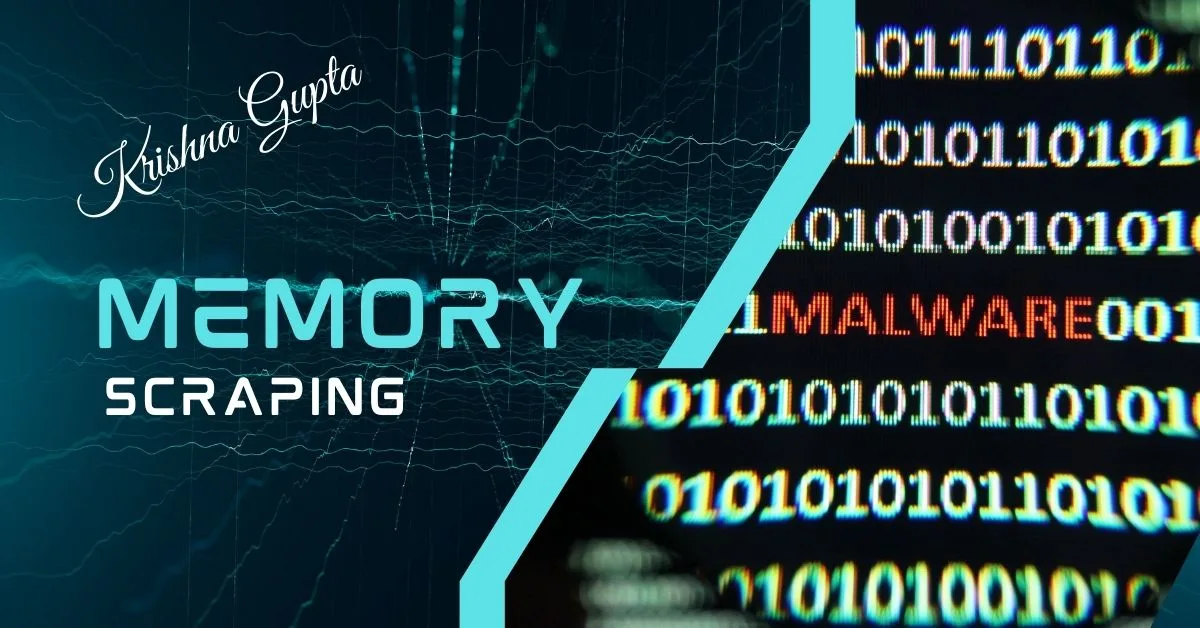Memory Scraping Malware: The Silent Threat Lurking in Your PoS System
As CEOs, we understand data security’s critical role in business success. We invest in firewalls, encryption, and robust access controls. Yet, a silent threat often goes overlooked – memory scraping malware.
What is Memory Scraping Malware?
Imagine a thief rummaging through your checkout counter, not for cash, but for the fleeting traces of customer data left behind. That’s essentially what memory-scraping malware does. It targets point-of-sale (POS) systems, scanning the temporary memory (RAM) for sensitive information like credit card numbers and PINs.
Why Should You Care?
A memory-scraping attack can have a devastating impact on your business:
- Financial Loss: Stolen customer data translates to fraudulent charges and potential fines.
- Brand Damage: Data breaches erode customer trust, leading to reputational harm and lost sales.
- Regulatory Fines: Compliance failures due to inadequate data security can incur hefty penalties.
The ROI of ignoring this threat is simply negative.
Mitigating the Memory Scraping Risk
Here’s how you can fortify your defences:
- EMV Chip Technology: Embrace EMV chip cards that encrypt data, rendering them useless to memory scrapers.
- Regular Security Audits: Proactive penetration testing can identify vulnerabilities before exploiting them.
- Data Encryption: Encrypt information at rest and in transit, minimising the value for attackers even if a breach occurs.
- Security Awareness Training: Educate employees on spotting suspicious activity and phishing attempts.
Memory-scraping malware may be silent, but its consequences can be loud. By prioritising data security with these measures, you safeguard your financial well-being, brand reputation, and customer trust – all essential ingredients for sustainable business growth.
Don’t wait for a data breach to become a cautionary tale. Invest in robust data security today.
Malware analysis, vulnerability assessment, and penetration testing form a powerful security triad that can significantly reduce the risk of memory-scraping malware disrupting your business continuity. Here’s how each piece contributes:
- Malware Analysis: Imagine a forensics team meticulously examining a thief’s tools. Malware analysis involves dissecting suspicious software to understand its capabilities. Security experts can identify patterns and develop detection methods by analysing known memory scrapers. This proactive approach helps prevent similar malware from infiltrating your systems in the first place.
- Vulnerability Assessment: Consider this a security audit that pinpoints weaknesses in your defences. Vulnerability assessment tools scan your POS systems for known loopholes that memory scrapers might exploit. These could be software bugs, misconfigured settings, or outdated applications. By patching these vulnerabilities, you significantly reduce the attack surface for memory-scraping malware.
- Penetration Testing: Here’s where the gloves come off. Penetration testing simulates a real-world cyberattack, with ethical hackers attempting to exploit vulnerabilities and breach your systems. This proactive approach uncovers vulnerabilities missed by scanners and exposes weaknesses in your security posture, like employee awareness or incident response protocols. Plugging these holes makes you a much harder target for memory scrapers and other cyber threats.

By implementing all three of these practices, you gain a multi-layered defence:
- Prevention: Malware analysis helps you identify and block memory scrapers before they infiltrate your network.
- Detection: Vulnerability assessments pinpoint weaknesses that could be exploited by memory scrapers or other malware.
- Response: Penetration testing exposes vulnerabilities and weaknesses in your security posture, allowing you to fix them before an attack occurs.
This holistic approach significantly reduces the risk of memory-scraping malware disrupting your business. Remember, proactive security is always a better – and more cost-effective – investment than recovering from a costly data breach.